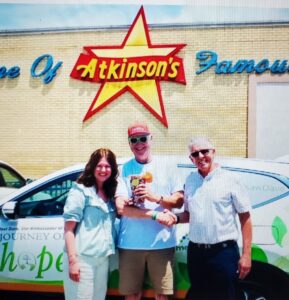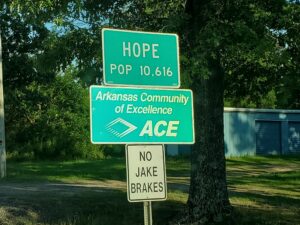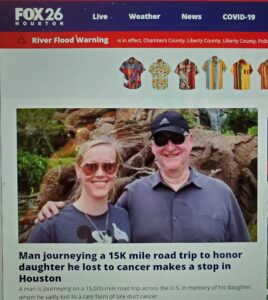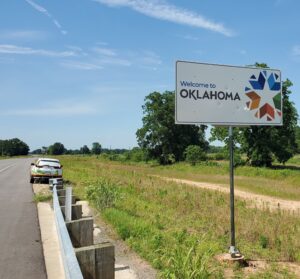
Journey of Hope: Day 26
Home / JoH Blog / [wpbb post:title]
Tonight, I’d like to share two stories that continue to make my Journey of Hope one of the most meaningful experiences of my life. I received both of the notes, below, within the past 24 hours; from opposite ends of the country. After reading each of them, I believe you’ll understand why it’s easy for me to get back in the car for yet another day or two+ weeks!
#1: From an ER Nurse:
“Hi Dave, I just wanted to share with you a touching moment I had last night. I had a 46-year-old male patient come in who has end-stage cholangiocarcinoma. He was diagnosed a year and a half ago. His body has reached a point where he can no longer tolerate chemo anymore and he has been rapidly declining over the past month. He will most likely become a hospice patient during this hospital admission. He was so weak and so drowsy, not really having the strength for conversation but I wanted to share your journey with him so that he would know you are fighting for him. I told him about your incredible journey, he managed to keep his eyes open long enough to see a couple of your pictures and your awesome car. He thought the car was really neat. When I explained to him that the purpose of your journey was to spread Hope for people with cholangiocarcinoma and their families the brightest most beautiful smile came across his face. It was a beautiful moment we shared together and then he quickly fell back asleep.”
#2: From Tom Leitzke, a warrior, (that Sarah admired greatly). This speaks volumes to what has been said many times along the journey to people we’ve engaged with: If you have been diagnosed with any type of cancer, you need to be tested for biomarkers.
“I have the BRCA2 mutation. For women that means a 70% likelihood of breast cancer, for me, my oncologist says it’s a likely root cause of why I got cholangiocarcinoma. Also, the last couple of years I was on a heavy downward spiral with metastatic spreads to my brain, femur bone, ribs, and lungs. Then early last year my oncologist recognized I have “microstatic instability” (MSI) and my immunotherapy treatments drastically reduced the spread. I would likely not be here now if it wasn’t for that. These are two examples where my mutations had a significant impact. My family is also now aware so they can be checked.”
Give A Little Whistle!
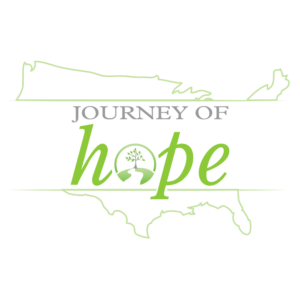 Donate to Support Research
Donate to Support Research
or text the phrase journeyofhope to 41444


